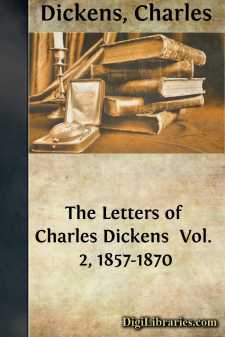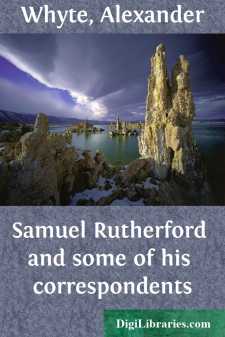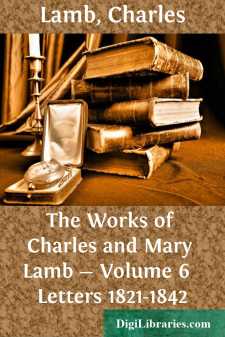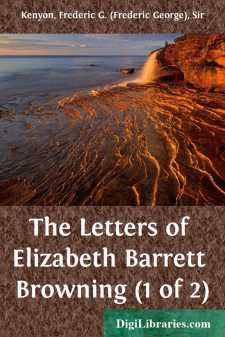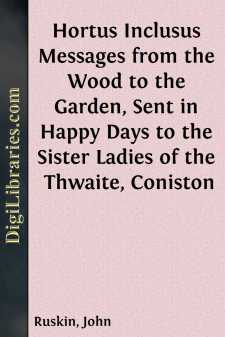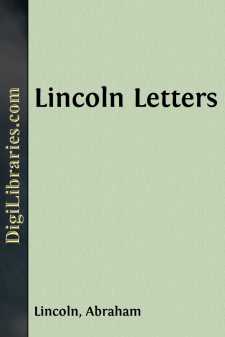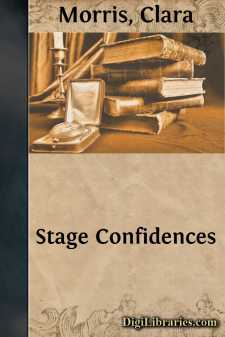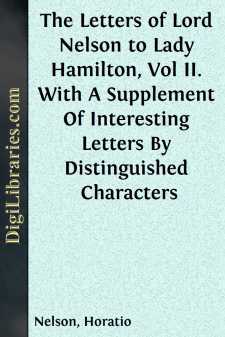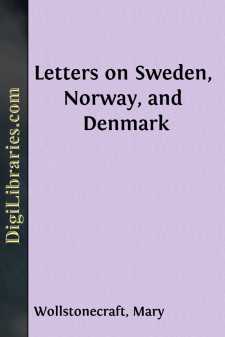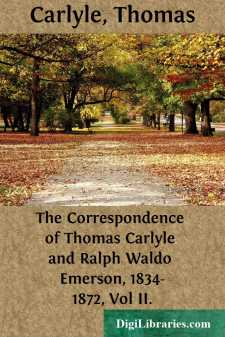Literary Collections
- American 84
- Ancient, Classical & Medieval 14
- Asian 1
- Australian & Oceanian 1
- Canadian 55
- Continental European 121
- English, Irish, Scottish, Welsh 179
- Essays 160
- General 24
- Letters
- Middle Eastern 1
Letters Books
Sort by:
by:
Charles Dickens
1857. NARRATIVE.Thiswas a very full year in many ways. In February, Charles Dickens obtained possession of Gad's Hill, and was able to turn workmen into it. In April he stayed, with his wife and sister-in-law, for a week or two at Wate's Hotel, Gravesend, to be at hand to superintend the beginning of his alterations of the house, and from thence we give a letter to Lord Carlisle. He removed...
more...
by:
Alexander Whyte
I. JOSHUA REDIVIVUS ‘He sent me as a spy to see the land and to try the ford.’ Rutherford. Samuel Rutherford, the author of the seraphic Letters, was born in the south of Scotland in the year of our Lord 1600. Thomas Goodwin was born in England in the same year, Robert Leighton in 1611, Richard Baxter in 1615, John Owen in 1616, John Bunyan in 1628, and John Howe in 1630. A little...
more...
by:
Charles Lamb
LETTER 264 CHARLES LAMB TO DOROTHY WORDSWORTH [P.M. January 8, 1821.] Mary perfectly approves of the appropriat'n of the feathers, and wishes them Peacocks for your fair niece's sake! Dear Miss Wordsworth, I had just written the above endearing words when Monkhouse tapped me on the shoulder with an invitation to cold goose pye, which I was not Bird of that sort enough to decline. Mrs. M. I am...
more...
CHAPTER I 1806-1835 Elizabeth Barrett Barrett, still better known to the world as Elizabeth Barrett Browning, was born on March 6, 1806, the eldest child of Edward and Mary Moulton Barrett. I Both the date and place of her birth have been matters of uncertainty and dispute, and even so trustworthy an authority as the 'Dictionary of National Biography' is inaccurate with respect to them. All...
more...
by:
John Ruskin
PREFACE. [Pg v] The ladies to whom these letters were written have been, throughout their brightly tranquil lives, at once sources and loadstones of all good to the village in which they had their home, and to all loving people who cared for the village and its vale and secluded lake, and whatever remained in them or around of the former peace, beauty, and pride of English Shepherd Land. Sources they...
more...
by:
Abraham Lincoln
Washington, Dec. 24th, 1848. My dear father:— Your letter of the 7th was received night before last. I very cheerfully send you the twenty dollars, which sum you say is necessary to save your land from sale. It is singular that you should have forgotten a judgment against you; and it is more singular that the plaintiff should have let you forget it so long, particularly as I suppose you have always...
more...
by:
Clara Morris
CHAPTER I A WORD OF WARNING Every actress of prominence receives letters from young girls and women who wish to go on the stage, and I have my share. These letters are of all kinds. Some are extravagant, some enthusiastic, some foolish, and a few unutterably pathetic; but however their writers may differ otherwise, there is one positive conviction they unconsciously share, and there is one question...
more...
by:
Horatio Nelson
LETTER XL. Victory, under Majorca, January 13th, 1804. MY OWN DEAR BELOVED EMMA, I received, on the 9th, your letters of September 29th, October 2, 7, 10, 12, 17th, November 5th, 8th, to the 24th: and I am truly sensible of all your kindness and affectionate regard for me; which, I am sure, is reciprocal, in every respect, from your own Nelson. If that Lady Bitch knew of that person's...
more...
INTRODUCTION. Mary Wollstonecraft was born on the 27th of April, 1759. Her father—a quick-tempered and unsettled man, capable of beating wife, or child, or dog—was the son of a manufacturer who made money in Spitalfields, when Spitalfields was prosperous. Her mother was a rigorous Irishwoman, of the Dixons of Ballyshannon. Edward John Wollstonecraft—of whose children, besides Mary, the...
more...
by:
Thomas Carlyle
CORRESPONDENCE OF CARLYLE AND EMERSON LXXVI. Emerson to Carlyle Concord, 1 July, 1842 My Dear Carlyle,—I have lately received from our slow friends, James Munroe & Co., $246 on account of their sales of the Miscellanies,—and I enclose a bill of Exchange for L51, which cost $246.50. It is a long time since I sent you any sketch of the account itself, and indeed a long time since it was posted,...
more...


